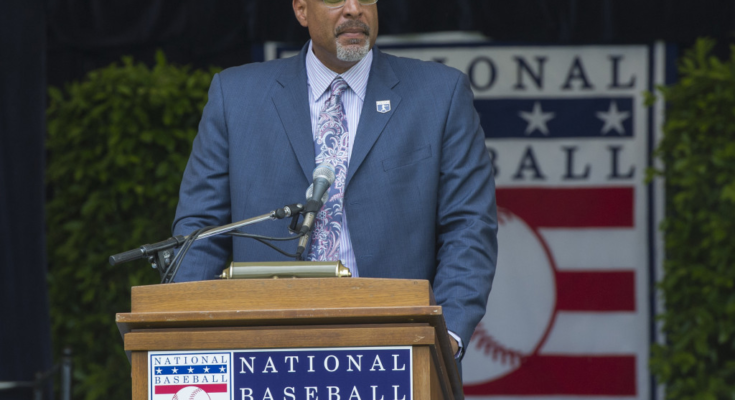6:30 pm: Jon Heyman of the MLB Network reports (on Twitter) that the parties are expected to meet daily through the end of February.
4:59 pm: Major League Baseball and the MLB Players Association met for the second consecutive day this afternoon. After MLB made its latest core economics proposal yesterday, the union made a counteroffer on a couple key issues today.
As was the case with the league’s last proposal, the union offered relatively minor tweaks relative to its past wishes (as first reported by Evan Drellich of the Athletic). The union proposal called for 75% of players with between two and three years of MLB service time to be eligible for arbitration. That’s down five percentage points from the union’s previous offer, which had called for 80% of players in the 2-3 year service bucket to qualify for Super Two. (MLBTR’s Tim Dierkes explored the possible ramifications of 80% of players in that class qualifying for arbitration yesterday).
That’s a move toward a midpoint on one of the biggest topics of contention, but there remains a huge gap on that matter. The league has steadfastly refused to entertain the possibility of expanding arbitration at all. Under the previous collective bargaining agreement, 22% of players in the 2-3 year service bucket qualified as Super Two. MLB has thus far been committed to keeping that number as is. Broader arbitration eligibility has been a key goal for the players throughout negotiations, as they started with a request for all players with two-plus years of service reaching that process before reducing that ask over their past couple offers.
The union paired their reduced ask on arbitration with a more player-friendly league minimum salary arrangement than they’ve sought in past offers. The MLBPA had previously been pursuing a flat league minimum salary of $775K throughout the term of the next CBA. Jeff Passan of ESPN reported (on Twitter) that the union continued to seek a $775K minimum next season but proposed increases in future years. Bob Nightengale of USA Today tweets the proposal would call for jumps in the league minimum by $30K each season over the course of a five-year CBA, as follows:
2022: $775K
2023: $805K
2024: $835K
2025: $865K
2026: $895K
MLB, predictably, has offered a lower league minimum to date. The league’s proposals have called for a flat $630K minimum or a staggered minimum between $615K and $725K, depending on the amount of a player’s service time. As Travis Sawchik of the Score pointed out last month, the minimum would need to be set at $650K just to keep pace with that of the 2016-21 CBA after accounting for inflation. The union, as part of its broader efforts to get more money to players earlier in their careers, has sought an increase beyond that mark throughout negotiations.
Finally, the union made a minor tweak to its proposal for the draft lottery (as Drellich first reported). While the MLBPA had previously sought for the first eight picks of the draft to be determined by lottery (as a moderate disincentive to rebuilding), the union modified that down to seven selections. The league’s latest offer would’ve had the top four picks determined by lottery.
Perhaps of most note, Drellich reports that the union did not address the competitive balance tax in today’s proposal. The CBT (informally known as the luxury tax) is shaping up as arguably the most contentious issue in talks. The union has sought to raise the base tax threshold from $210MM to $245MM next season, with the threshold eventually reaching $273MM by the end of the CBA. The league has proposed a far more modest increase — to $214MM in 2022, $222MM by the end of the CBA — and has pushed for heightened penalties for teams that exceed the thresholds.
MLB didn’t modify its CBT ask in its proposal yesterday. Jesse Rogers of ESPN tweeted at the time that the league viewed it as the union’s turn to make a move on the luxury tax, since the MLBPA’s previous proposal didn’t contain any changes to their prior goals regarding the CBT. It’s not clear whether the union agrees it should make the next move on the luxury tax, but there’s been no progression towards an agreement on that issue this week.
According to various reporters (including Michael Silverman of the Boston Globe), the league was disappointed with the offer — particularly with the union’s push for greater minimum salaries down the line. The parties will reconvene tomorrow, Drellich tweets. Rogers reports (via Twitter) that the league made a renewed suggestion for federal mediation but was rebuffed by the union. That’s no surprise, as the MLBPA quickly declined the league’s first push for mediation three weeks ago. Various players and MLBPA leadership pointed to the failures of mediation efforts in past CBA negotiations and the time it’d take for a third party to get up to speed on the relevant issues as justifications for doing so.
Presumably, MLB will respond to the union’s latest proposal (at least on issues regarding Super Two and the league minimum) tomorrow. That the sides are meeting daily after much of the lockout has dragged on without meaningful movement is no doubt of relief to some fans, but neither side’s proposal over the past two days appears to set the stage for any sort of imminent resolution. There are six days until MLB’s reported imposed deadline for a deal to be in place if the regular season is to begin on time.


